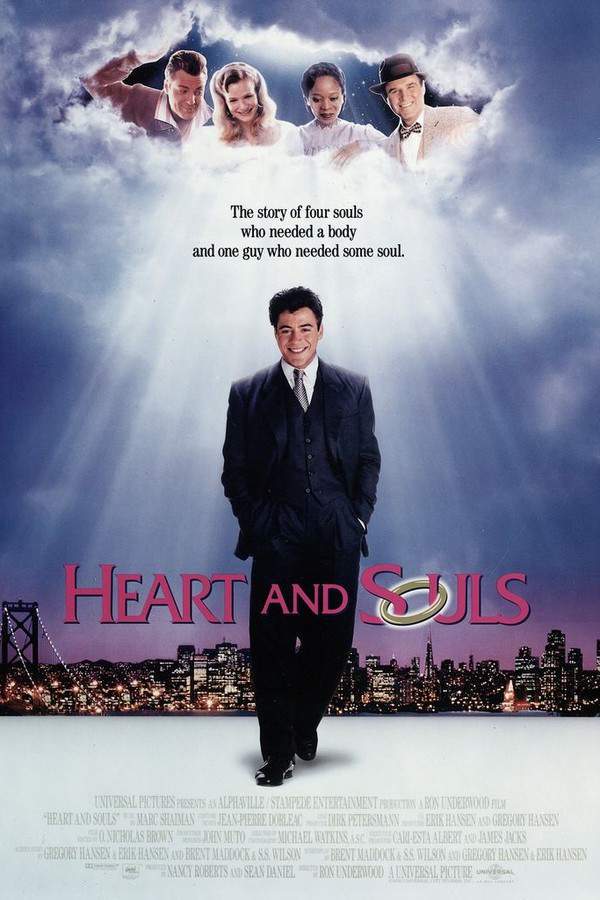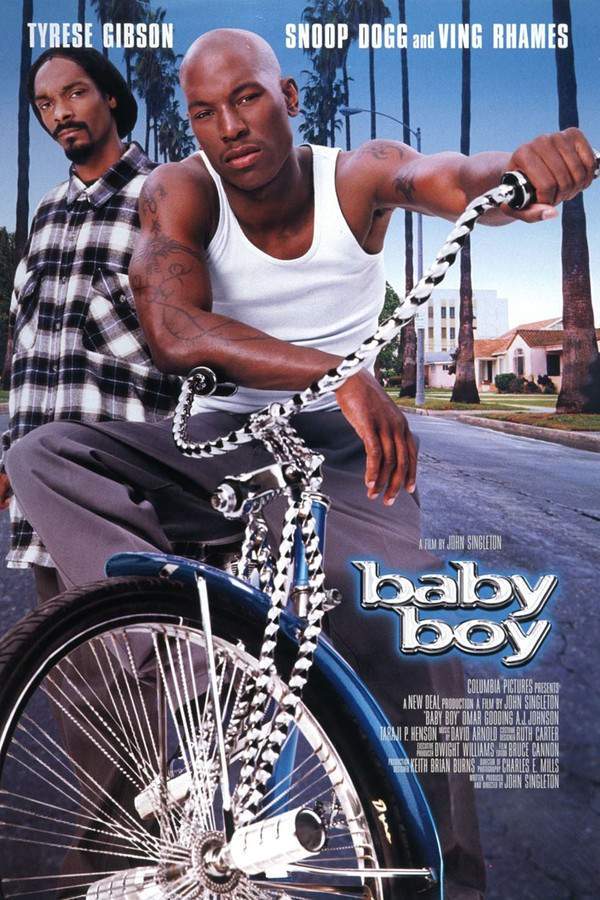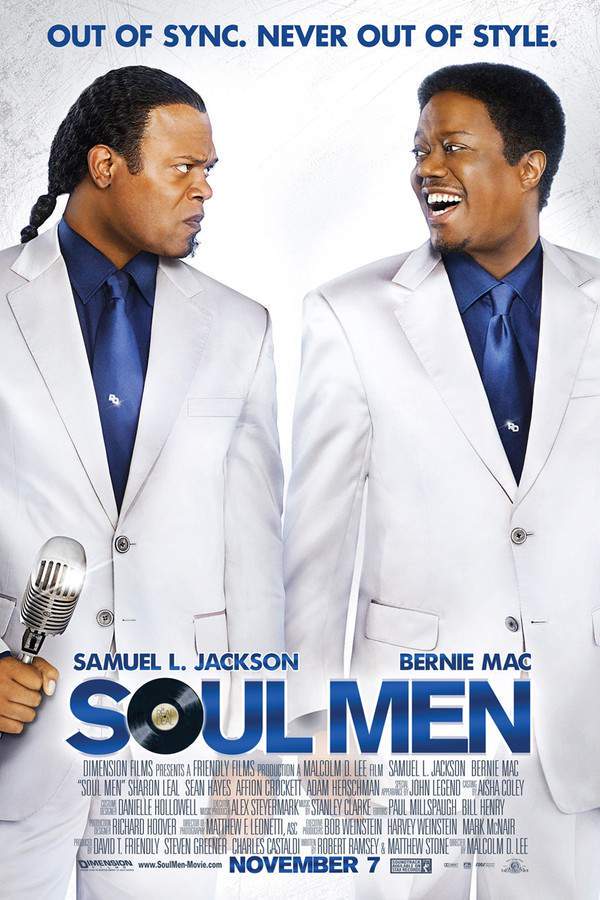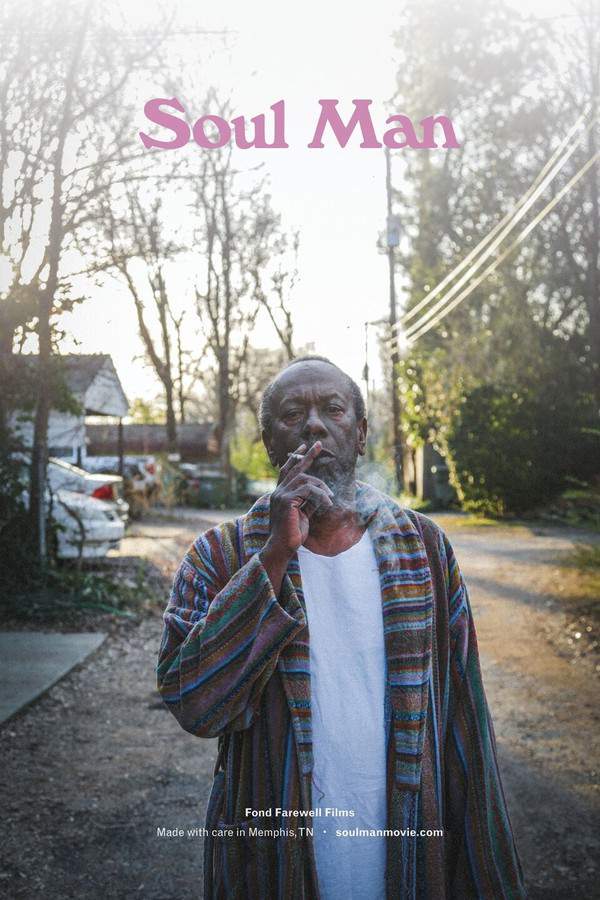
Soul Man 1986
Directed by
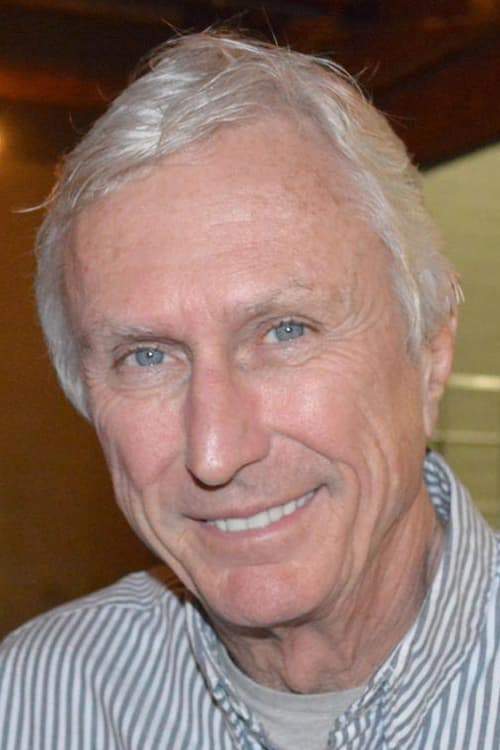
Steve Miner
Made by

Succéfilm AB
Test your knowledge of Soul Man with our quiz!
Soul Man Plot Summary
Read the complete plot summary and ending explained for Soul Man (1986). From turning points to emotional moments, uncover what really happened and why it matters.
Mark Watson, portrayed by C. Thomas Howell, is a recent graduate eager to embark on a new journey by attending law school at Harvard. He’s been banking on his affluent parents, who promised to cover his tuition and fees. However, during a perplexing conversation with his quirky father, James Sikking, Mark is dismayed to discover that his parents spent the funds on a timeshare in the Tropics instead of saving it for his education. Enraged, he resorts to a rather unusual tactic by hanging an effigy of his father, using a Cabbage Patch doll dressed to resemble him.
Determined to secure a scholarship, Mark faces a significant obstacle: the wealth of his parents disqualifies him from most financial aid. After some searching, he finds a scholarship aimed specifically at academically outstanding African-American students from California. Seizing the opportunity, Mark concocts a plan that involves obtaining experimental tanning pills from a friend working as a pharmaceutical technician. He takes them in excessive amounts, resulting in a darker appearance that allows him to masquerade as black. This scheme leads him to successfully deceive his best friend, Gordon Bloomfield, played by Arye Gross, as well as the scholarship committee. During a jog, Mark confides in Gordon about his deception, causing Gordon to tumble off a pier into the ocean in surprise.
Once they arrive in Boston, Mark and Gordon rent a place from Mr. Dunbar, an overtly prejudiced landowner, portrayed by Leslie Nielsen. To compound matters, Dunbar’s vivacious daughter, Whitney, played by Melora Hardin, is eager to get close to Mark. She misinterprets his African-American heritage and invites him to dinner with her family, leading to an incredibly awkward evening where her father watches him suspiciously, fearing Mark’s intentions involve dating his daughter solely for her skin color.
As classes commence, Mark breaks a pact with Gordon by enrolling in criminal law, hoping to leverage his connection with the black professor, James Earl Jones, expecting an easy semester. However, he soon realizes that Professor Banks’ class is far more challenging than anticipated, with the professor explicitly stating, > “I don’t play favorites, regardless of race.”
Amid his struggles, Mark meets Sarah, brought to life by Rae Dawn Chong, an intelligent law student with a much poorer background who is also a single mother to her son, George. Though initially, she sees through Mark’s flirtation, he gradually earns her respect through hard work.
One day, while navigating Cambridge, Mark finds himself the target of a racist police officer who falsely arrests him. While detained, he suffers not only humiliation but also physical violence at the hands of racist football fans. This unexpected turn of events makes it impossible for him to submit an essential term paper for Professor Banks, who, even after learning of Mark’s ordeal, reluctantly grants him a brief extension to complete it.
As the semester progresses, Mark uncovers a shocking truth: Sarah was the other candidate for the scholarship he secured. This realization sends him into a guilt-ridden state, as he grapples with the moral implications of his deception. Despite Gordon’s attempts to persuade him to keep quiet, fate intervenes when Professor Banks offers Mark a position on the student judiciary council, adding to his inner turmoil.
In a whirlwind of chaos, Mark’s world unravels when his parents pay an unannounced visit, coinciding with a surprise appearance from Sarah. Attempting to maintain the facade collapses when Mark ultimately reveals the truth. What follows is a sequence of events with Sarah storming off in anger, his parents’ shock, and an eviction notice due to his situation as he reconciles with the aftermath.
The judiciary council convenes to discuss Mark’s actions, where Gordon defends him while Mark comes forward, leading to surprising reactions from his peers. Professor Banks later meets with Mark, agreeing that his misguided actions, while wrong, have given him a unique perspective on racism and prejudice. He counsels Mark that he has learned something profound about being treated as a minority.
To make amends, Mark takes on a busboy job in the university cafeteria, where he witnesses bigoted students telling racist jokes. This compels him to confront them, leading to a physical altercation. The story ultimately concludes with Mark and Sarah rekindling their friendship, setting the stage for new beginnings after this tumultuous journey.
Soul Man Timeline
Follow the complete movie timeline of Soul Man (1986) with every major event in chronological order. Great for understanding complex plots and story progression.
Mark's Graduation
Mark Watson graduates and looks forward to starting law school at Harvard. He is hopeful as his affluent parents promised to cover his tuition and fees.
Finding Out the Truth
In a surprising conversation with his father, Mark discovers that his parents have squandered his tuition funds on a timeshare in the Tropics. This revelation leaves him distraught and furious about his future.
The Effigy Incident
Enraged by his parents' betrayal, Mark ventures to express his anger through an unusual act by hanging an effigy of his father. He uses a Cabbage Patch doll dressed to resemble his dad, which showcases his frustration in a humorous manner.
Scholarship Search
Mark learns that his parents' wealth disqualifies him from most financial aid. Determined to secure a scholarship, he discovers one aimed at academically outstanding African-American students from California.
The Tanning Pill Scheme
To qualify for the scholarship, Mark devises a plan involving experimental tanning pills from a friend. He takes them in excessive amounts, resulting in a darker complexion that enables him to masquerade as black.
Confession to Gordon
While jogging, Mark confides in his best friend Gordon about his deception. This shocking revelation causes Gordon to lose balance and tumble into the ocean, highlighting the absurdity and danger of Mark's scheme.
Moving to Boston
Arriving in Boston, Mark and Gordon secure a rental from Mr. Dunbar, an overtly prejudiced landlord. Unbeknownst to Mark, Dunbar's daughter, Whitney, is interested in him, complicating their living situation.
Awkward Dinner Invitation
Whitney invites Mark to dinner with her family, mistakenly believing he is African-American. The evening is tense as Mr. Dunbar eyes Mark suspiciously, suspecting his intentions toward Whitney.
Struggles in Class
As classes begin, Mark enrolls in criminal law, hoping to gain an advantage from Professor Banks. He quickly learns that the class is much more challenging than he anticipated, as the professor emphasizes fairness across all races.
Mark Meets Sarah
While at Harvard, Mark encounters Sarah, a single mother and fellow law student. Their initial interactions are strained, but Mark's determination and hard work begin to earn her respect.
False Arrest Incident
Mark becomes a victim of racial profiling when a police officer falsely arrests him. This humiliating experience culminates in a physical altercation, leaving him shaken and unable to submit an important term paper.
Guilt over Deception
Mark discovers that Sarah was the other candidate for the scholarship he secured, which sends him into a turmoil of guilt. Despite encouragement from Gordon to keep quiet, Mark struggles with the moral implications.
Parents Visit
In a chaotic turn of events, Mark’s parents make an unannounced visit to Boston, coinciding with Sarah arriving unexpectedly. This causes Mark's carefully maintained facade to collapse, leading to an explosive reveal.
Judiciary Council Meeting
The judiciary council convenes to discuss Mark’s deception. In a surprising twist, Gordon stands up for him while Mark reveals the truth, provoking varied reactions from his peers and shedding light on the complexities of his situation.
Reconciliation and Growth
Mark takes a job as a busboy to make amends, leading to confrontations with racist remarks from students. By standing up against them, he reaffirms his beliefs and rekindles a friendship with Sarah, setting a hopeful tone for the future.
Soul Man Characters
Explore all characters from Soul Man (1986). Get detailed profiles with their roles, arcs, and key relationships explained.
Mark Watson (C. Thomas Howell)
Mark is a determined recent graduate seeking admission to law school. His journey is complicated by his misguided choice to impersonate someone of a different race to secure a scholarship. His character arc involves grappling with the consequences of his deception and ultimately seeking redemption.
Gordon Bloomfield (Arye Gross)
Gordon is Mark's supportive best friend, who finds himself caught in Mark's web of lies. Despite his initial shock at Mark's deception, he remains loyal and attempts to guide Mark towards honesty and moral integrity as events unfold.
Professor Banks (James Earl Jones)
Professor Banks is an authoritative figure in Mark's law education, emphasizing the importance of fairness and hard work. His character embodies the complexities of mentorship and gives Mark a reality check about the consequences of his actions.
Sarah (Rae Dawn Chong)
Sarah is an intelligent law student and single mother who ultimately becomes a pivotal figure in Mark's realization of his wrongdoings. Her resilience and moral fortitude challenge Mark to confront his own values and decisions.
Mr. Dunbar (Leslie Nielsen)
Mr. Dunbar is a prejudiced landlord who embodies the societal prejudices that Mark encounters. His character adds depth to the film's exploration of race by illustrating the blatant discrimination that persists in everyday life.
Soul Man Settings
Learn where and when Soul Man (1986) takes place. Explore the film’s settings, era, and how they shape the narrative.
Time period
The film is set in contemporary times, reflecting societal issues such as race relations and class disparity. It captures a pivotal moment in Mark's life as he navigates the complexities of higher education and personal integrity.
Location
Cambridge, Boston, Tropics
The story unfolds primarily in Cambridge, a vibrant city known for its prestigious universities, including Harvard, where Mark strives to prove himself. It also references the Tropics, where Mark's parents invested in a timeshare, highlighting their affluential lifestyle. This contrast illustrates the disparity between Mark's aspirations and his family's distractions.
Soul Man Themes
Discover the main themes in Soul Man (1986). Analyze the deeper meanings, emotional layers, and social commentary behind the film.
🎭
Identity
Mark's journey is marked by his attempts to navigate racial identity and deception. His use of tanning pills to alter his appearance reveals the extreme lengths he goes to in pursuit of acceptance and opportunity. The theme explores the fluidity of identity and the moral dilemmas that often accompany it.
⚖️
Racism
The film directly confronts issues of racism and prejudice, showcasing Mark's struggles as he faces hostility both from the police and his peers. It serves as a critical commentary on societal stereotypes and the challenges that come with crossing racial boundaries.
💔
Guilt
Mark's deception leads to a profound sense of guilt, particularly upon discovering that Sarah deserved the scholarship he obtained through dishonesty. This theme highlights the emotional consequences of his actions and the impact of personal choices on relationships.

Coming soon on iOS and Android
The Plot Explained Mobile App
From blockbusters to hidden gems — dive into movie stories anytime, anywhere. Save your favorites, discover plots faster, and never miss a twist again.
Sign up to be the first to know when we launch. Your email stays private — always.
Soul Man Spoiler-Free Summary
Discover the spoiler-free summary of Soul Man (1986). Get a concise overview without any spoilers.
In a gritty urban landscape where personal secrets loom as large as the city’s skyline, the story opens on Maria, a young woman whose life has been upended by an unexpected pregnancy with a charismatic football star who soon disappears. The shock of the revelation is so profound that it triggers a heartbreaking tragedy at home, forcing Maria to leave the familiar comfort of her family and step into a world that feels both alien and unforgiving. The film’s tone balances raw realism with a lingering, almost poetic melancholy, inviting the audience to feel the weight of every quiet, desperate breath she takes.
While navigating this new, solitary existence, Maria crosses paths with Matthew, a volatile computer technician whose own inner turbulence mirrors her own. Their meeting is less about romance at first glance and more about two damaged souls recognizing familiar patterns of hurt and isolation in each other. The street‑level setting, with its flickering neon signs and rain‑slicked sidewalks, serves as a silent witness to their tentative connection, hinting at the possibility of something deeper beneath the surface grittiness. The mood is intimate yet unflinching, capturing the fragile balance between vulnerability and the stubborn drive to survive.
Both characters are drawn together by shared emotional wounds, and the narrative lingers on the nuanced dance of trust as they learn to confront the ghosts of their pasts. The film’s style leans into naturalistic dialogue and understated visual storytelling, allowing the audience to sense the undercurrents of longing and hope without overt exposition. As Maria and Matthew grapple with their respective demons, the story invites viewers to wonder whether their fragile bond can evolve beyond mere companionship into something more profound—a love that might finally grant them the peace they’ve both been searching for.
Can’t find your movie? Request a summary here.
Movies with Similar Twists and Themes
Uncover films that echo the narrative beats, emotional arcs, or dramatic twists of the one you're exploring. These recommendations are handpicked based on story depth, thematic resonance, and spoiler-worthy moments — perfect for fans who crave more of the same intrigue.
Featured on this page

What's After the Movie?
Not sure whether to stay after the credits? Find out!
Explore Our Movie Platform
New Movie Releases (2026)
Famous Movie Actors
Top Film Production Studios
Movie Plot Summaries & Endings
Major Movie Awards & Winners
Best Concert Films & Music Documentaries
Movie Collections and Curated Lists
© 2026 What's After the Movie. All rights reserved.


